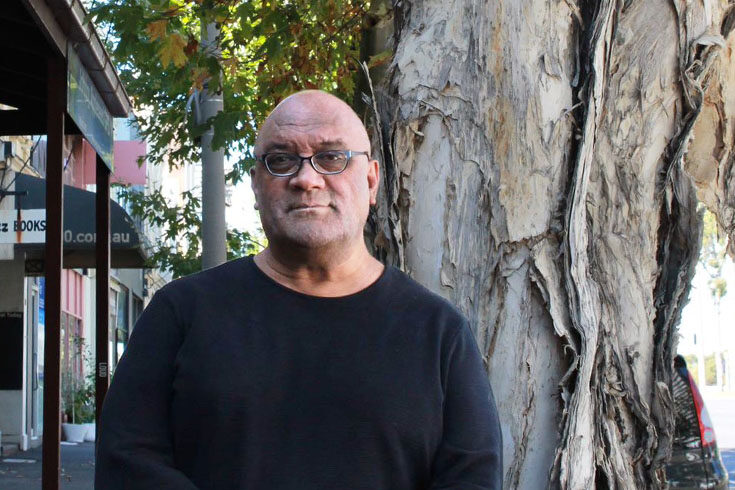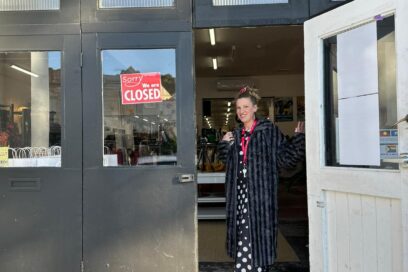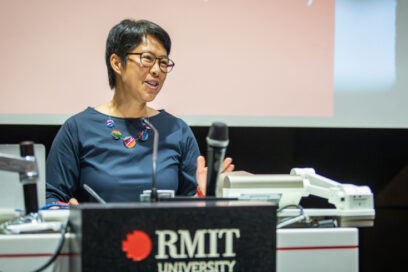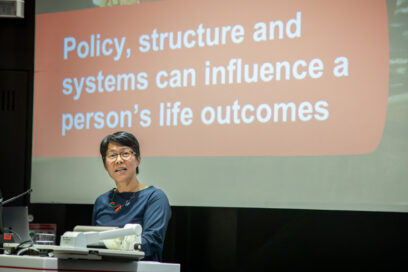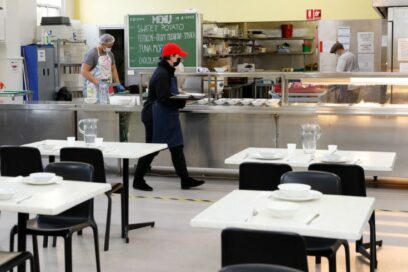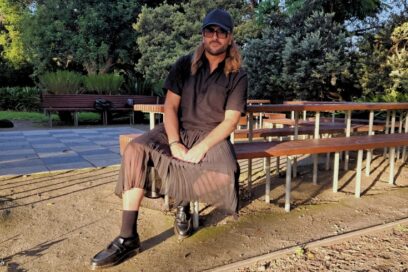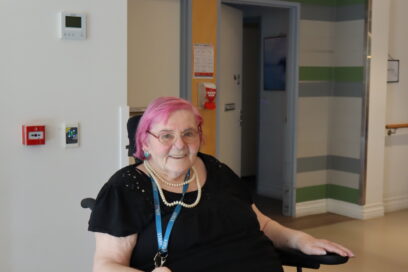Homelessness is a form of social exclusion. Exclusion from participating in social activities, forming strong relationships and feeling safe and well in the community.
At Sacred Heart Mission our aim is to not only support our clients out of homelessness, but to ensure they also have the opportunity to engage fully in community life. This is exactly what our Journey to Social Inclusion (J2SI) program is all about.
Workforce participation is a key component on this journey for our clients. Our J2SI program includes a team of Workforce Participation Workers who support J2SI participants over three years to form and understand their goals about reengaging with the workforce. This may include studying or re-training, volunteering or obtaining a paid role.
Understanding the clients’ needs
J2SI participants generally want to work, but often find the process of finding and keeping work very challenging. This is where Workforce Participation Workers, like staff member John Taru come in. John has worked in traditional employment services for over 25 years and with a wide range of people who needed help finding work.
“My focus is on understanding the client’s needs and collaborating with them,” says John.
“My relationship with the client is primary in all that I do.”
“It allows them to re-engage with society, reclaim some of their purpose and restore dignity, and mitigate stigma about people who are unemployed.”
Connection builders
John views his role as a “connection builder”. He fosters a strong network of education and training providers as well as labour hire agencies and small businesses. He builds understanding within these networks about how to best support clients looking for work.
John supports clients to explore what kinds of work they are interested in and how to get there. Some industries or roles require specific qualifications or training, a police check, having a driver’s licence and a car – and more recently, proof of a Covid-19 vaccination. John helps clients gather what they need to be successful.
He also provides guidance about online applications, preparing for interviews and communicating with prospective employers.
Overcoming challenges to get work-ready
With support from staff like John, clients choose what type of work suits them best. Some clients have experienced past trauma in their former workplaces. This can cause anxiety about returning to work but John works in partnership with clients to overcome these challenges.
John is thrilled when one of his clients is successful in finding work. Recently, two of his clients found opportunities on their own through labour hire firms. One works in packing and warehousing, the other driving a forklift. John is there to provide post-placement support, to ensure clients have support through the ups and downs and can thrive at work.
Another client who is passionate about working in the community sector and using her lived experience to benefit others is now getting ready to study for a Certificate IV Community Services. John’s support has been vital in navigating the higher education sector.
It’s all about giving people a go
John sees so many opportunities for people who have been unemployed for a long time, and how the cohort he works with are frequently undervalued and not well supported to find work.
“I can’t understand why we don’t give more people a go.”
John wants to see mainstream employment services providers focus on finding jobseekers the “right” job, not just “any” job.
Though some people may need more support than others to re-engage with the workforce, John believes that our clients are worth the investment.
“It has to be about the journey that the client has – because the outcome will be there. It’s all about the relationship.”


